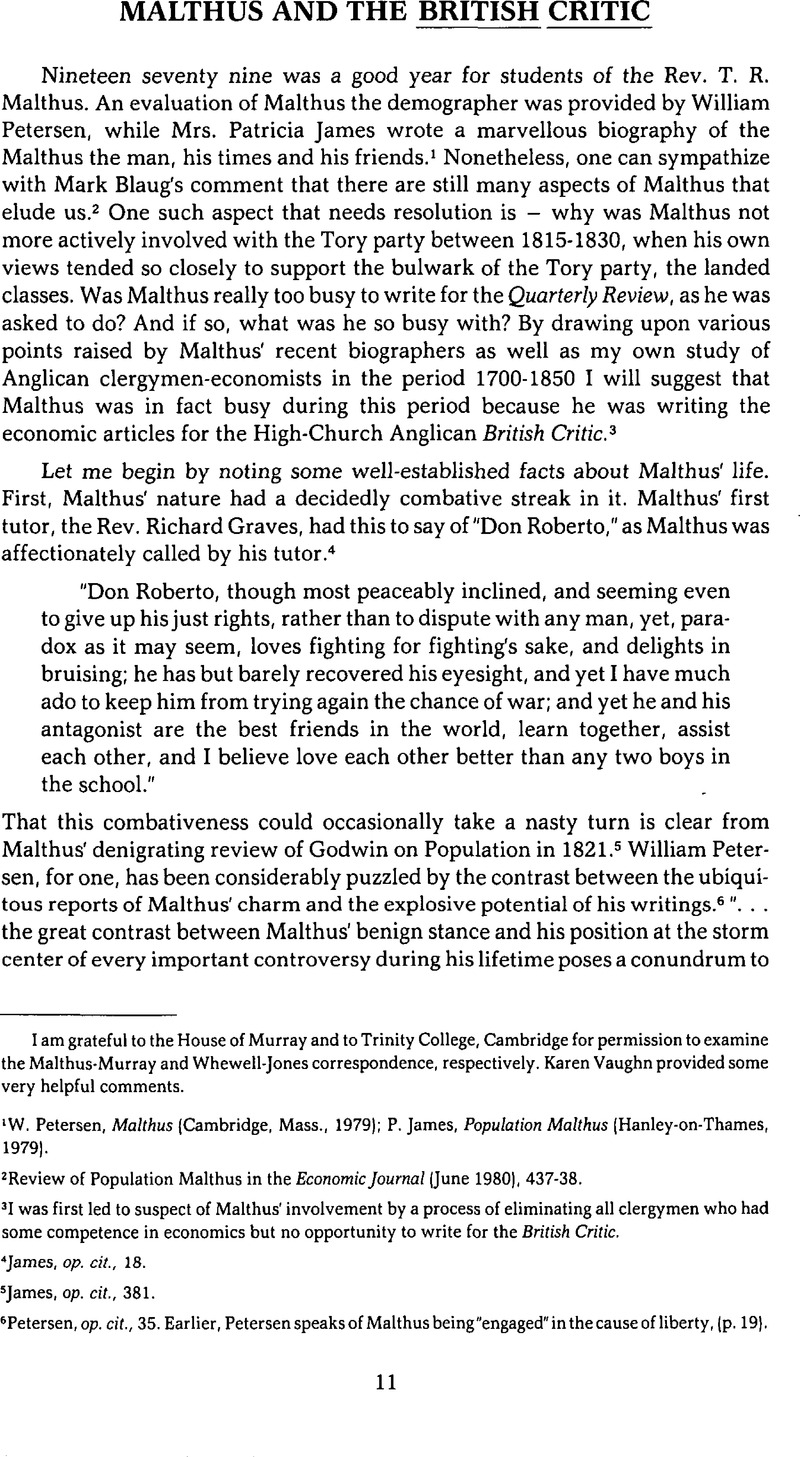Article contents
Malthus and the British Critic
Published online by Cambridge University Press: 11 June 2009
Abstract

- Type
- Other
- Information
- Copyright
- Copyright © Cambridge University Press 1982
References
I am grateful to the House of Murray and to Trinity College, Cambridge for permission to examine the Malthus-Murray and Whewell-Jones correspondence, respectively. Karen Vaughn provided some very helpful comments.
01 W. Petersen, Malthus (Cambridge, Mass., 1979); P. James, Population Malthus (Hanley-on-Thames, 1979).
02 Review of Population Malthus in the Economic Journal (June 1980), 437–38.
03 I was first led to suspect of Malthus' involvement by a process of eliminating all clergymen who had some competence in economics but no opportunity to write for the British Critic.
04 James, op. cit., 18.
05 James, op. cit., 381.
06 Petersen, op. cit., 35. Earlier, Petersen speaks of Malthus being “engaged” in the cause of liberty, (p. 19).
07 James, op. cit., 30.
08 James, op. cit., 268.
09 Malthus to Chalmers, 23rd August 1821, quoted in James, op. cit., 449. I believe the importance of this letter is somewhat underrated by Mrs. James.
10 “Memoir of the Rev. T. R. Malthus,” in Principles of Political Economy (London 1836) 2nd edition. iii.
11 James, op. cit., 168.
12 I have documented the seriousness with which Malthus believed in the ultimate victory of his own views in “Malthus Principles and British Economic Thought.” (Forthcoming, History of Political Economy.)
13 Although Barry Gordon has noted the high quality of the articles in the British Critic there appears to have been no systematic study of this periodical. B. Gordon, “Says Law, Effective Demand, and the Contemporary British Periodicals,” Economica (1965), 438–46.
14 Malthus to Chalmers, Feb. 16, 1833. Chalmers Papers, National Library of Scotland. Whewell to Jones, April 1832, Whewell Papers, Trinity College, Cambridge.
15 For further evidence of Malthus' involvement see a letter to a Mr. Bell in the Brougham Papers, University College London. Malthus writes that he has read Bell's economic articles in the Spectator and recommends him as a competent economist.
16 See, in particular, Malthus to Murray, Oct. 7, 1823 and Apr. 9, 1824.
17 Although I must agree strongly with Mrs. James that “It can be argued that we over-emphasize the importance of Ricardo in Malthus's life because their friendship is so fully documented.” op. cit., 272. This paragraph is too long to be quoted at length; also consider the penetrating comments on pp. 248–49.
- 2
- Cited by




